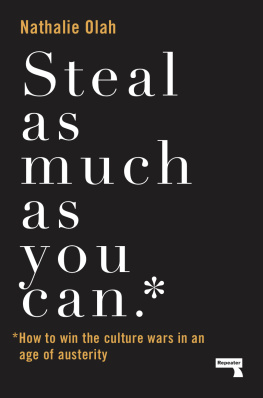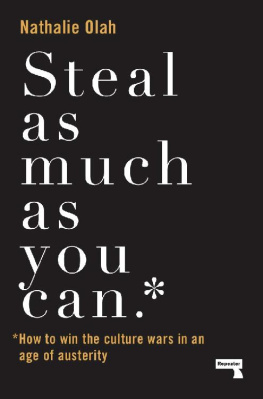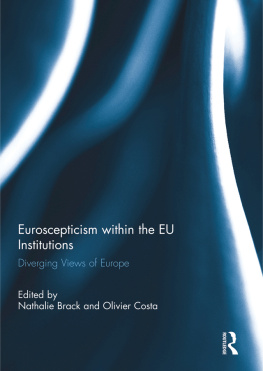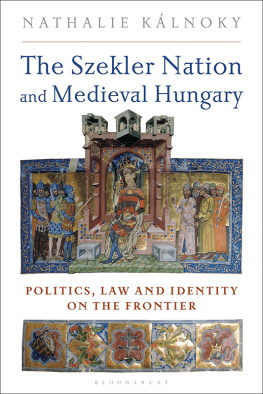Nathalie Olah - Steal As Much As You Can
Here you can read online Nathalie Olah - Steal As Much As You Can full text of the book (entire story) in english for free. Download pdf and epub, get meaning, cover and reviews about this ebook. year: 2019, publisher: Watkins Media, genre: Politics. Description of the work, (preface) as well as reviews are available. Best literature library LitArk.com created for fans of good reading and offers a wide selection of genres:
Romance novel
Science fiction
Adventure
Detective
Science
History
Home and family
Prose
Art
Politics
Computer
Non-fiction
Religion
Business
Children
Humor
Choose a favorite category and find really read worthwhile books. Enjoy immersion in the world of imagination, feel the emotions of the characters or learn something new for yourself, make an fascinating discovery.
- Book:Steal As Much As You Can
- Author:
- Publisher:Watkins Media
- Genre:
- Year:2019
- Rating:3 / 5
- Favourites:Add to favourites
- Your mark:
- 60
- 1
- 2
- 3
- 4
- 5
Steal As Much As You Can: summary, description and annotation
We offer to read an annotation, description, summary or preface (depends on what the author of the book "Steal As Much As You Can" wrote himself). If you haven't found the necessary information about the book — write in the comments, we will try to find it.
Steal As Much As You Can — read online for free the complete book (whole text) full work
Below is the text of the book, divided by pages. System saving the place of the last page read, allows you to conveniently read the book "Steal As Much As You Can" online for free, without having to search again every time where you left off. Put a bookmark, and you can go to the page where you finished reading at any time.
Font size:
Interval:
Bookmark:

Published by Repeater Books
An imprint of Watkins Media Ltd
Unit 11Shepperton House
89-93 Shepperton Road
London
N1 3DF
United Kingdom
www.repeaterbooks.com
A Repeater Books paperback original 2019
Distributed in the United States by Random House, Inc., New York.
Copyright Nathalie Olah 2019
Nathalie Olah asserts the moral right to be identified as the author of this work.
Cover design: Johnny Bull
Typography and typesetting: Frederik Jehle
Typefaces: Meriden LT Std, Bodoni URW, Gill Sans, Times New Roman
ISBN: 9781912248568
Ebook ISBN: 9781912248575
All rights reserved. No part of this publication may be reproduced, stored in a retrieval system, or transmitted, in any form or by any means, electronic, mechanical, photocopying, recording or otherwise, without the prior permission of the publishers.
This book is sold subject to the condition that it shall not, by way of trade or otherwise, be lent, re-sold, hired out or otherwise circulated without the publishers prior consent in any form of binding or cover other than that in which it is published and without a similar condition including this condition being imposed on the subsequent purchaser.
Printed and bound in the United Kingdom by TJ International Ltd
Contents
Introduction*
On 18 December 2018, forty-three-year-old Hungarian national Gyula Remes died in an underpass attached to Westminster tube station in London. He was days away from starting a new job that could have paved the way to a more secure and stable life. Westminster station has become a popular spot with the citys homeless population thanks to its warmth, emerging as an all-too-vivid symbol of the UKs inequality due to its proximity to Parliament where, for over a decade, Conservative MPs have overseen a programme of damaging austerity, causing a 24% increase in homeless fatalities.
A day later in that same building, Opposition leader Jeremy Corbyn called Prime Minister Theresa May either a stupid woman or stupid person, depending on the account, under his breath in response to a remark about the possible outcome of a no-deal Brexit. The media maelstrom that soon encircled the story prompted Corbyn to hit back, issuing a video segment in which he referenced Gyulas death not as a decoy, but to highlight the disproportionate amount of attention paid to a momentary slip in parliamentary decorum, compared with the social issues whose dire effects were now being demonstrated only a short walk from Parliament. In response, the Labour Party received endless accusations by social media users, including members of the establishment media, of tastelessly exploiting a mans death for political advantage, as well as facetious remarks from publications in reference to the fact that they had, in fact, given coverage to Gyulas death, while failing to heed the main point about proportion and emphasis.
It wasnt the first time this had happened. In February 2018, a similar cacophony surrounded the death of another homeless man at Westminster station, leading to reprisals for those who sought to raise awareness of the issue. It begged the question, then: when is a good time to mention the deaths of people on the streets of one of the richest countries on Earth, and who gets to decide? Whats more, when is an appropriate time to discuss the medias skewed priorities, if not during the midst of a PR circus surrounding one fairly tame and innocuous parliamentary gaffe?
To those watching carefully, it was clear that a perverse logic reigned, one that was driven by a fanatical obsession with good manners, delivery and PR nous. Its strange rules dictated that the word stupid was more offensive than the rising levels of poverty, homelessness and other forms of degradation that had prompted its utterance. Meanwhile, for decades, wed heard good taste, pragmatism, sensibleness, civility, respectability and decency used ad nauseum to justify policies whose real-world effects amounted to widespread suffering and harm including hastening the onset of cataclysmic climate change while also being used as a line of impenetrable defence against any outside criticism. We had grown used to a politics that favoured style over substance, in which politicians frequently stretched the truth and avoided answering difficult questions. But in addition to this was a far less easily detectable, but no less profound, shift in dialogue and reasoning. One that, on the grounds of taste and decorum, eliminated the possibility for meaningful debate or critical engagement on the issues affecting peoples lives. Being divorced from any ideology or principle, the vague terms used to justify the political agenda had been endlessly redefined to reflect the interests of those in charge, and any challenge dismissed offhand on the grounds of poor taste, a lack of decorum or the excessive politicisation of issues that in actual fact were nothing if not political. As a result, those in power had effectively wrapped themselves in an armour of rhetoric, protecting them from any real reproach.
In this complex semantic knot, in which the truth was often shrouded and sentiments confused, the only recourse for those seeking to challenge the establishment seemed to be either irony or victimhood, and neither would prove particularly effective in mounting any kind of real alternative. All this had happened thanks to a slow and steady corruption of our language, the origins of which can be traced back to the politics of the 1980s, where an ethical vacuum had been created by neoliberalism once a distinct ideology (or non-ideology, as many have been keen to point out), but which has since been steadily transposed onto every part of modern life. Neoliberalism advocates for the disentanglement of the free market from the state, minimising the possibility for any policy or ideology to override the free-market principles of competition and profit-making. But, as Mark Fisher points out in Capitalist Realism, neoliberalism came to shape far more than just straightforward economics, creating a culture which by extension favoured popularity above quality, spin above principle, and rhetoric above ideas. Theres a reason why The Emperors New Clothes has become a somewhat trite analogy for so much that has been created in the past few decades, as under the auspices of neoliberalism a new cultural economy emerged, whose sole metric was purchase. In this climate, ideas and truths came second to marketing, and marketing increasingly came to belie a vast and meaningless void.
In this sense, neoliberalism doesnt advocate a manipulation of the facts per se, but at its core is an assumption that honesty and principle are obsolete. The real success of Thatcher, Reagan and their acolytes was not just in imposing neoliberalism as an economic agenda, but in making it the modus operandi of the entire Western world, to the extent that it would shape our attitudes, behaviours and modes of communication. These are the circumstances by which the smokescreen politics of our current era has come to be: a politics that relies on the languages and styles of managerialism, under whose slick delivery an agenda of rampant, unabated capitalism could be passed off as the ointment for all of societys ills. It is a style of politics as divorced from the lived experience of the majority as it is from the markets that Thatcher and Reagan had so famously freed; as a result, politicians, spin-doctors and advisors have been allowed to enter into a purely academic exercise of seeking to win electoral majorities based on rhetoric alone.
Next pageFont size:
Interval:
Bookmark:
Similar books «Steal As Much As You Can»
Look at similar books to Steal As Much As You Can. We have selected literature similar in name and meaning in the hope of providing readers with more options to find new, interesting, not yet read works.
Discussion, reviews of the book Steal As Much As You Can and just readers' own opinions. Leave your comments, write what you think about the work, its meaning or the main characters. Specify what exactly you liked and what you didn't like, and why you think so.











![Nathalie Nahai [Nathalie Nahai] - Webs of Influence: The Psychology of Online Persuasion, 2nd Edition](/uploads/posts/book/124053/thumbs/nathalie-nahai-nathalie-nahai-webs-of.jpg)

